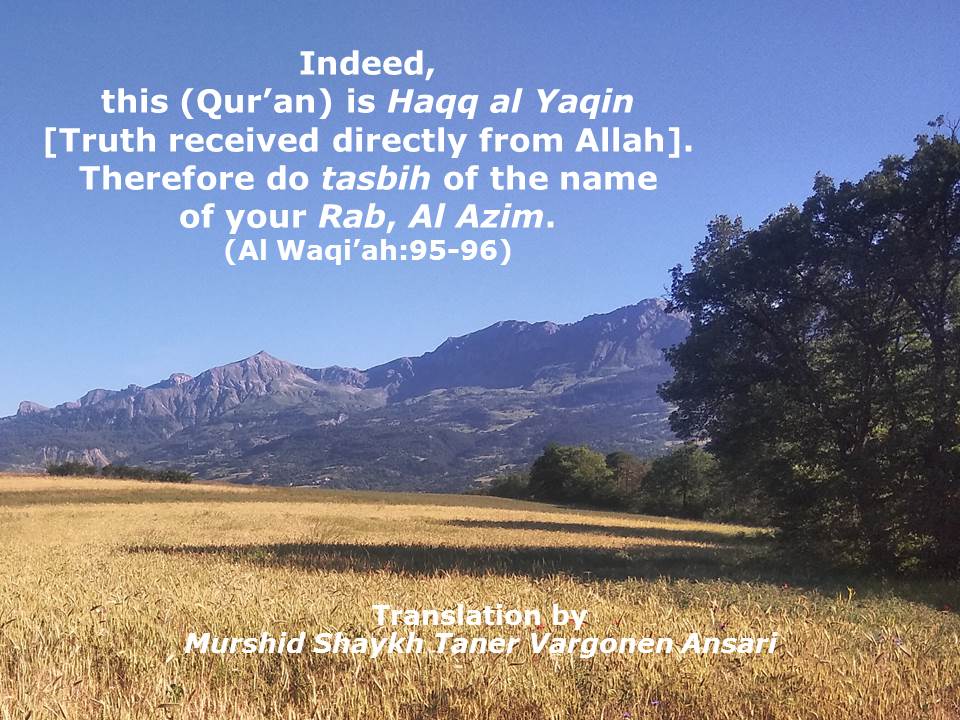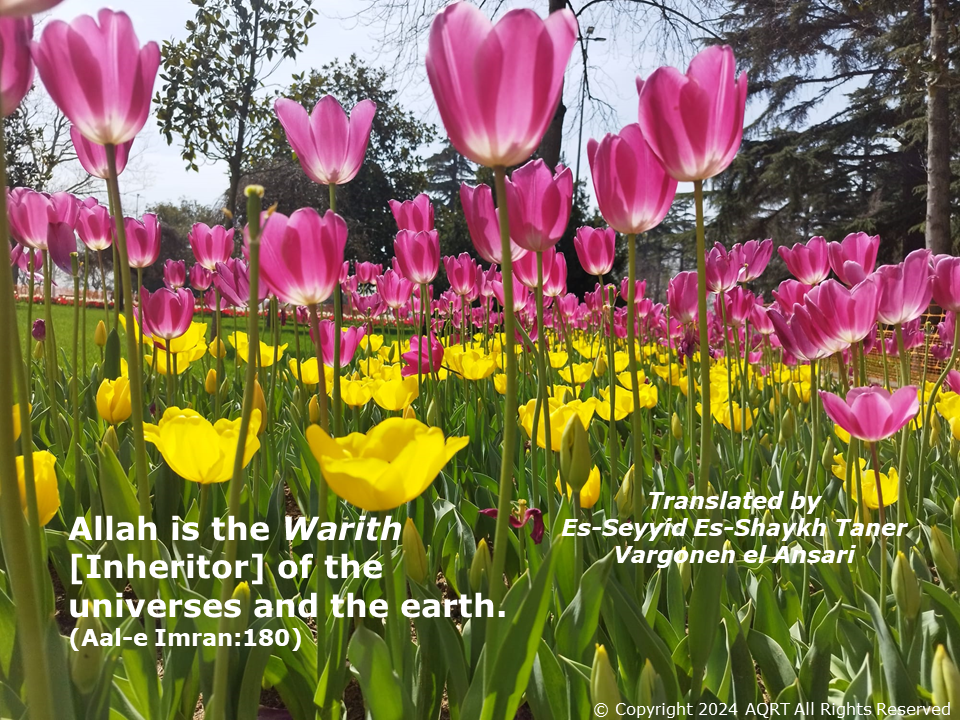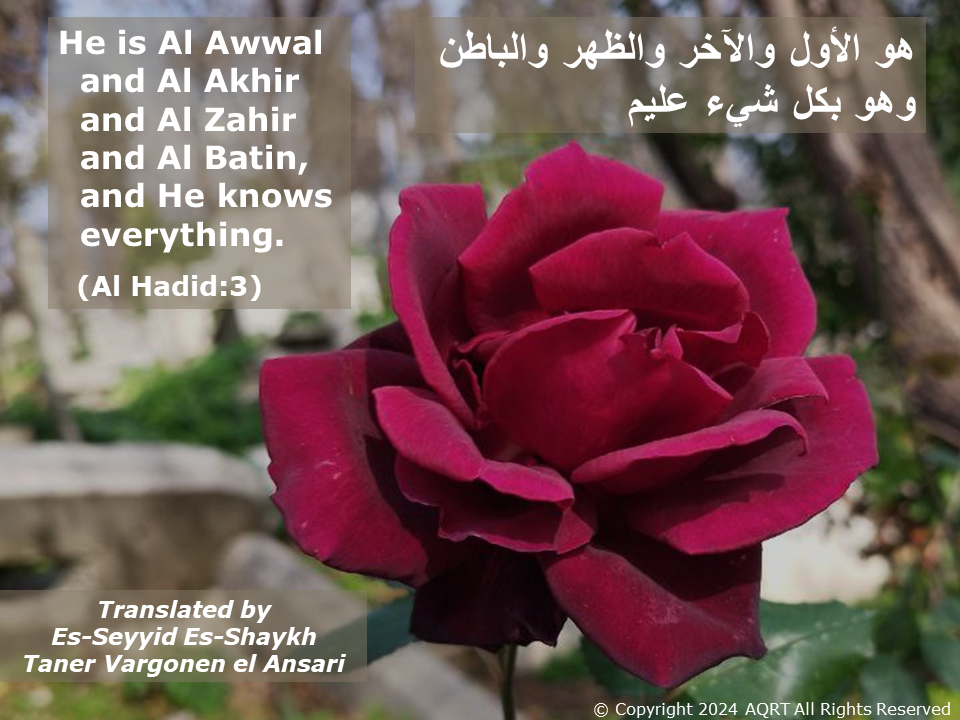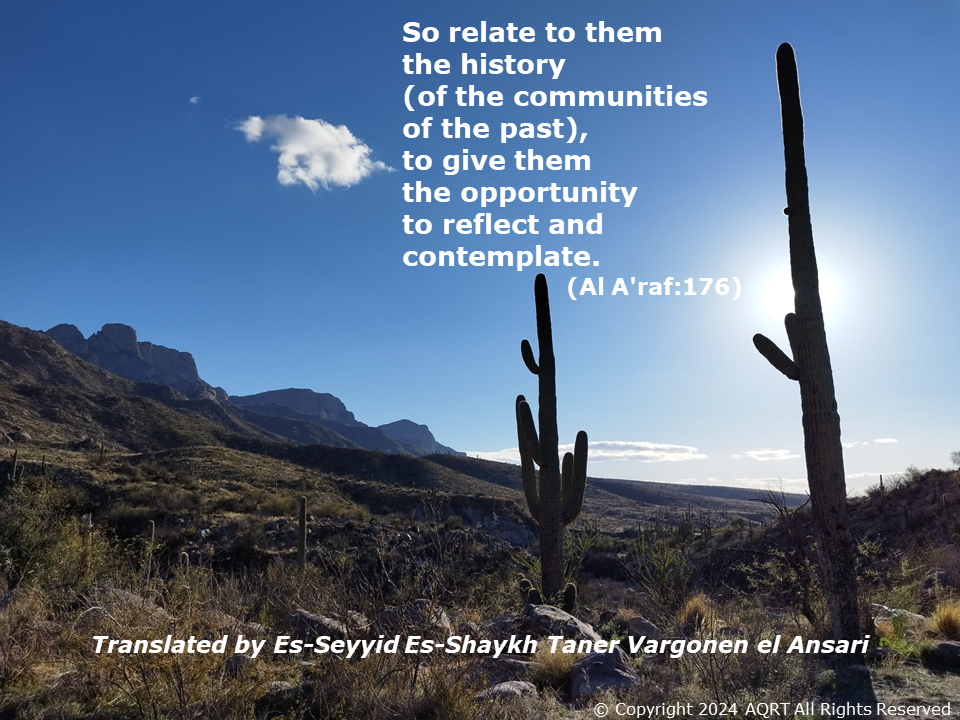The Role of the Murshid in Tariqa (Part 3)

Murshid (Part 2)
29 June 2020
Who is The Authority (Part 4 of 4)
27 July 2020
What is Sufism?
Sufism is the way to get closer to Allah through love by purifying yourself, by purification. So, there is sharia, there is tariqa, there is haqiqa, there is ma’rifa.
Ijtihad
The problem comes from one’s understanding and application of sharia. Why? Say, some people learn something at the time, and they do not want to change and they carry this as is or they keep adding to this and adding to this, and then this becomes ‘their’ sharia. Simple sharia is what Allah says in Qur’an-i Karim: there are 52 fardz. And then the sunna of the Prophet (peace be upon him), which is limited to prayers and this and that.
Now, where does the problem happen? The problem happens with the word ‘Ijtihad‘. Our Prophet (pbuh) says, “When there is a matter, refer it to the Qur’an. If you cannot find it, then refer it to the sunna. If you cannot find there, then make deduction.” This is where the problem is: “Make deduction.” Who is he telling? He is telling everybody. So everybody has to make their own deduction. But Islamic scholars, sometimes called Imams, make ijtihad on these things and then some people follow them because they are simple people and they do not want to make ijtihad. So there is Imam Hanbali, Imam Hanafi, Imam Shaafi’i, and then there is Imam Jafari. Each has a different opinion on the same subject. How come the scholars differ? So in certain areas that comes in the light at this time, the Murshid makes certain ijtihad.
Yaqin
How does a Murshid learn? A Murshid learns these 3 ways:
1. ‘Ayn al Yaqin (by observation)
2. Ilm al Yaqin (by reading)
3. Haqq al Yaqin (Allah teaches directly)
No, but if only you knew with Ilm al Yaqin [Sure Knowledge Through Research Or Written/Verbal Communication] (Al Takathur:5)
Yes, you will see it with ‘Ayn al Yaqin [Sure Knowledge Through Observation And Experience]. (Al Takathur:7)
Indeed, this (Qur’an) is Haqq al Yaqin [Truth received directly from Allah]. (Al Waqi’ah:95)
And (there is no doubt that this Qur’an) is Haqq al Yaqin [Sure Knowledge directly from Allah] (Al Haqqah:51)
But (the Qur’an contains) ayats self-evident in the hearts of those who are on the path of knowledge and science, and no one except the wrongdoers reject Our ayats. (Al Ankabut:49)
Kashf
One of the things that Murshid has is Kashf, which means observation. Allah shows them, they observe. What you do not see, they notice, they see these things. And because of humility, a Murshid does not act like a big shaykh and sticks to simplicity. However, in certain subjects that have come before, or people have been arguing about for years, the Murshid, with their kashf, brings clarity to the matter.
Tariqa
Tariqa means one needs to have an open mind. There cannot be a narrow mind to understand Allah. You cannot understand Allah by sharia only.
And We have created above you seven tariqas [paths], and We are fully aware of and know what We are creating and making. (Al Mu’minun:17)
That is why Allah made tariqa, because sharia is limited: religion, that’s it! But in tariqa you need to have an open mind because tariqa is based on Love. Sharia is based on laws and regulations.
And now We have set you (O Muhammad) on a clear road of sharia [proper behavior; commandment; law]. So follow it, and do not follow the urgings of those who do not have any knowledge. (Al Jathiyah:18)
In tariqa, shaykhs have to establish love first. LOVE. LOVE. When they do this, of course, they overlook a lot of things.
Say, “If you love Allah, then follow me. Allah will love you, and overlook and cleanse you of your sins. And Allah is Ghafur [Absolving] and Rahim [Full of Mercy and Kindness].” (Aal-e Imran:31)
What do you do in sharia? You pray and this that, but you scare people and instead of loving Allah, they are afraid of Allah! In tariqa, this is the path of love. That is what our Prophet (pbuh) gave as an answer to Hazrat Ali‘s question: “What is the shortest distance between me and Allah?” The Prophet (pbuh) said, “It is the path of love.”
Glossary
‘Ayn al Yaqin: Sure Knowledge through observation and experience
din: way of doing righteous deeds; way of life; right path of connectedness with Allah; way of relationship with God; system of actions that establish a connection to and relationship with Allah
fardz: compulsory religious rule
Fi’il-i Muhammad: the example Muhammad (pbuh) projected in living according to Allah’s wishes; Muhammad’s (pbuh) implementation of sharia; tariqa
Hal-i Muhammad: the spiritual state of Muhammad (pbuh); Muhammad’s direct knowledge of Allah; ma’rifa
haqiqa: the state of knowing absolute truth
Haqq al Yaqin: Truth received directly from Allah; Sure Knowledge
kashf: observation; spiritual understanding
ijtihad: deduction; the process of reasoning through which one draws conclusions about a subject
ilm: knowledge; science
Ilm al Ladun: Divine Knowledge received directly from Allah
Ilm al Yaqin: Sure Knowledge through research or written/verbal communication
imam: leader
ma’rifa: direct knowledge of Allah
Qawl-i Muhammad: what Allah said through Prophet Muhammad (pbuh); sharia
Qur’an-i Karim, Qur’an Al Karim: Generous Text
sharia: the body of Islamic religious canons; injunctions attributed to Prophet Muhammad (pbuh) regarding proper behavior for Muslims; proper behavior; commandment; law
Sirr-i Muhammad: Secret of Muhammad; haqiqa
sunna: the observed behavior of Prophet Muhammad (pbuh)
tariqa: path; Sufi order
tasbih: glorification; chanting in glorification; prayer beads; rosary; continuous glorification; repeated glorification
waliyyan murshid: teacher who guides and protects
yaqin: certainty; sure knowledge
This is an excerpt of the Online Saturday Sohbet given on December 10, 2011 by Murshid Shaykh Taner Vargonen Ansari and edited for this article on July 13, 2020. The translation of the Qur’an verses and glossary terms are from Murshid Shaykh Taner Vargonen Ansari.
You can read: The Spiritual System (Part 1) here…
To learn more about Sufism, watch:
http://bit.ly/Sufism01



